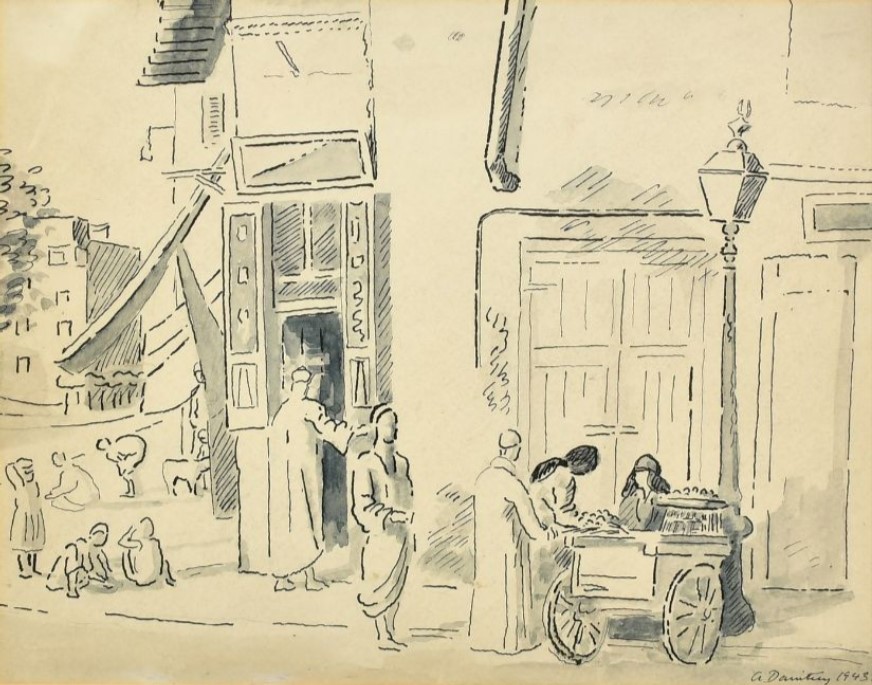I’ve coveted an Adrian Daintrey sketch for years, and at an auction not long ago I finally got hold of this wonderful one of wartime Cairo.

I like his decisive line for its own sake, but also because Daintrey (1902–88) was the basis for the character of Ralph Barnby in Anthony Powell’s novel series, A Dance to the Music of Time.
The Dance is 12 books long, encompassing 50 years, 400+ characters and a million words, give or take. I read it in my twenties and decided it would be worth re-reading it each decade of my life. And indeed, the read in my 30s was quite different. Perspectives change, life moves, and you find yourself and the people you know occupying different characters to the ones they did last time round. The final ‘season’ of three books was still my least favourite, but perhaps I’m just not old enough for them yet.
Like the character in the books, Daintrey served in the Camouflage Corps during the war, sketching North Africa and Italy as he passed through. The fictional artist was a pragmatic womaniser, the real one declared that he was ‘always in love with somebody’, which in practice appears to have meant broadly the same thing. Unlike Barnby, Daintrey lived to a roguish old age in an almshouse, ‘where to the end he was visited by many charming young women’ (as Powell euphemistically put it in his obituary).
As for his art, he was apparently fond of quoting André Derain:
‘Sit down in front of nature and show whether you are an imbecile or not.’
Obviously the sketch is by Daintrey, but it’s also sort of by Barnby – and it’s quite nice to have a little portal to the world of the Dance hanging on my wall. The novels often blur the line between fiction and fact, and now I have too.
